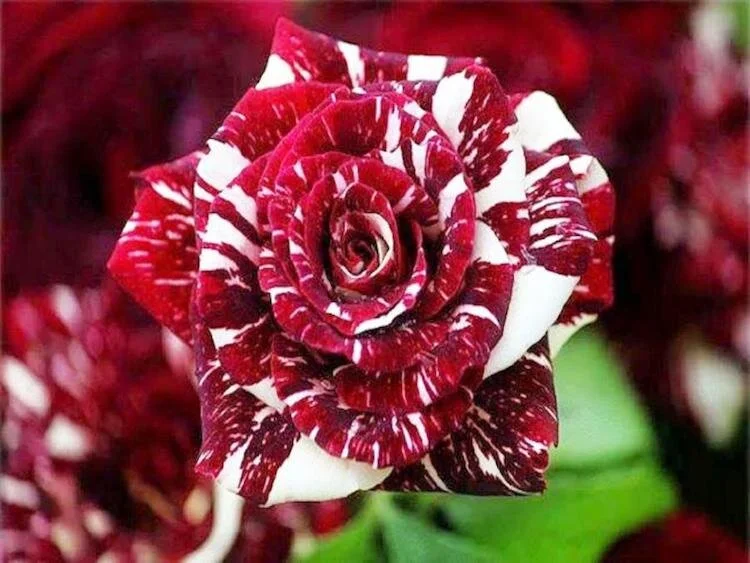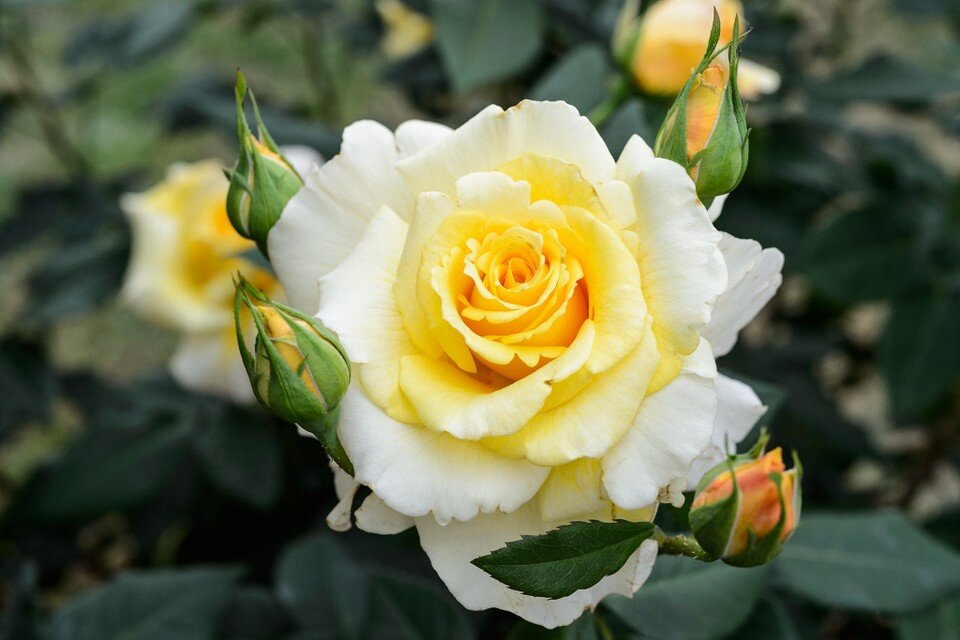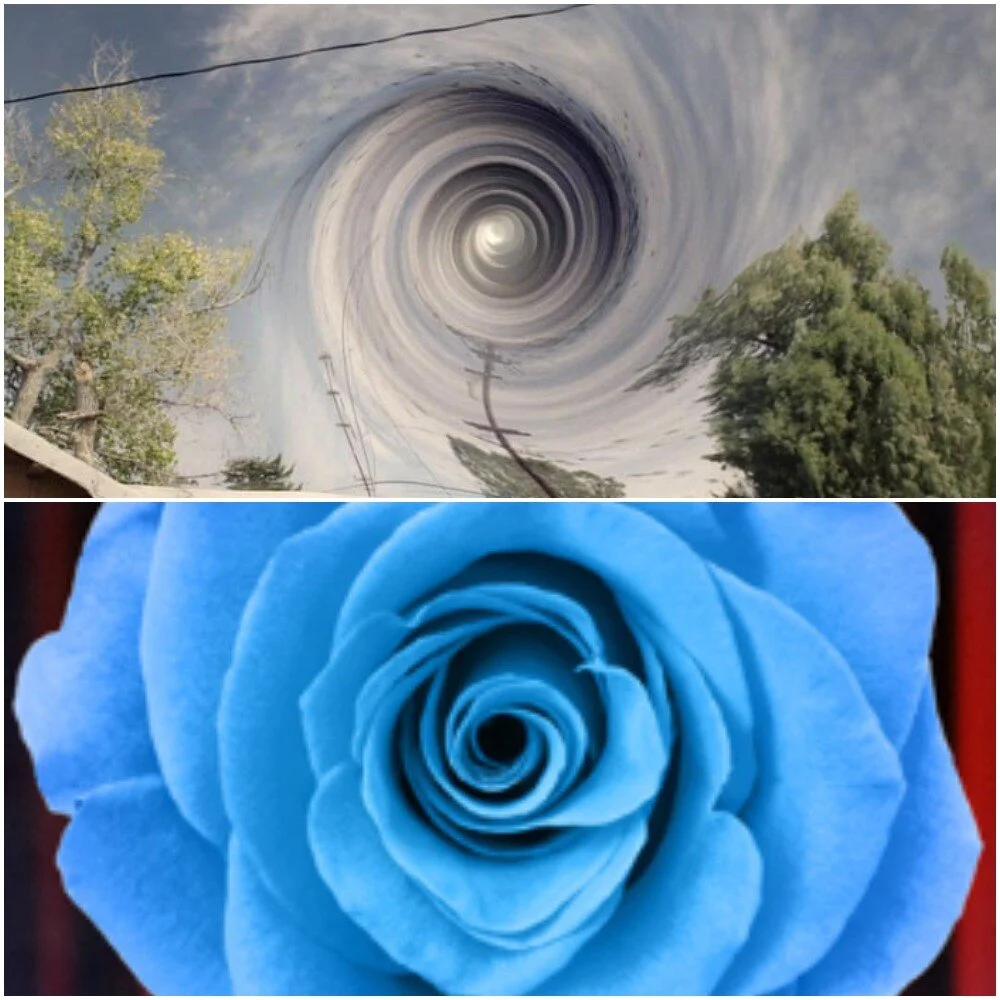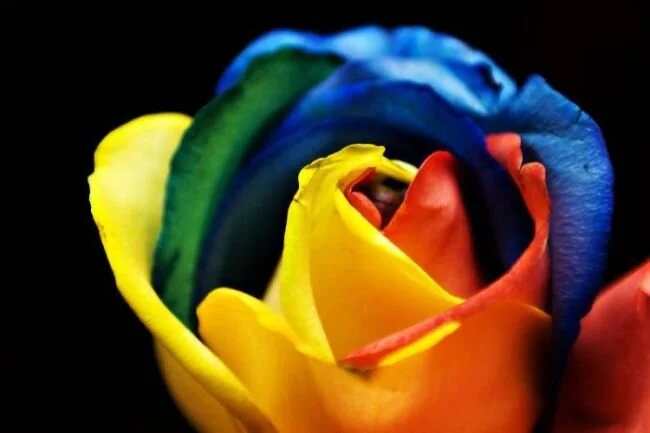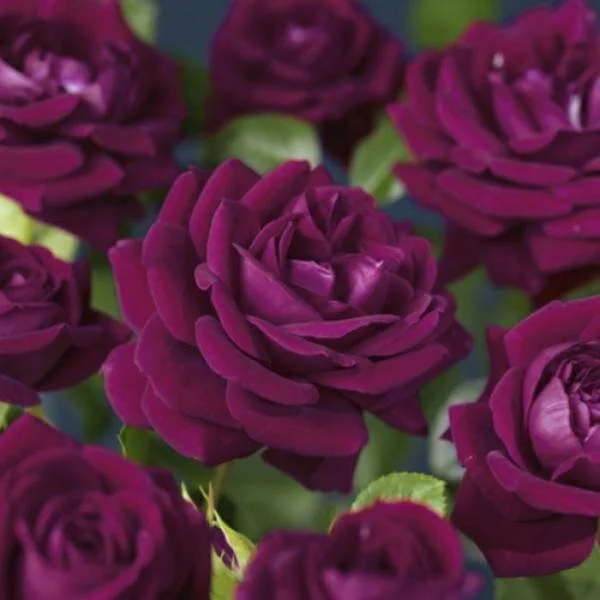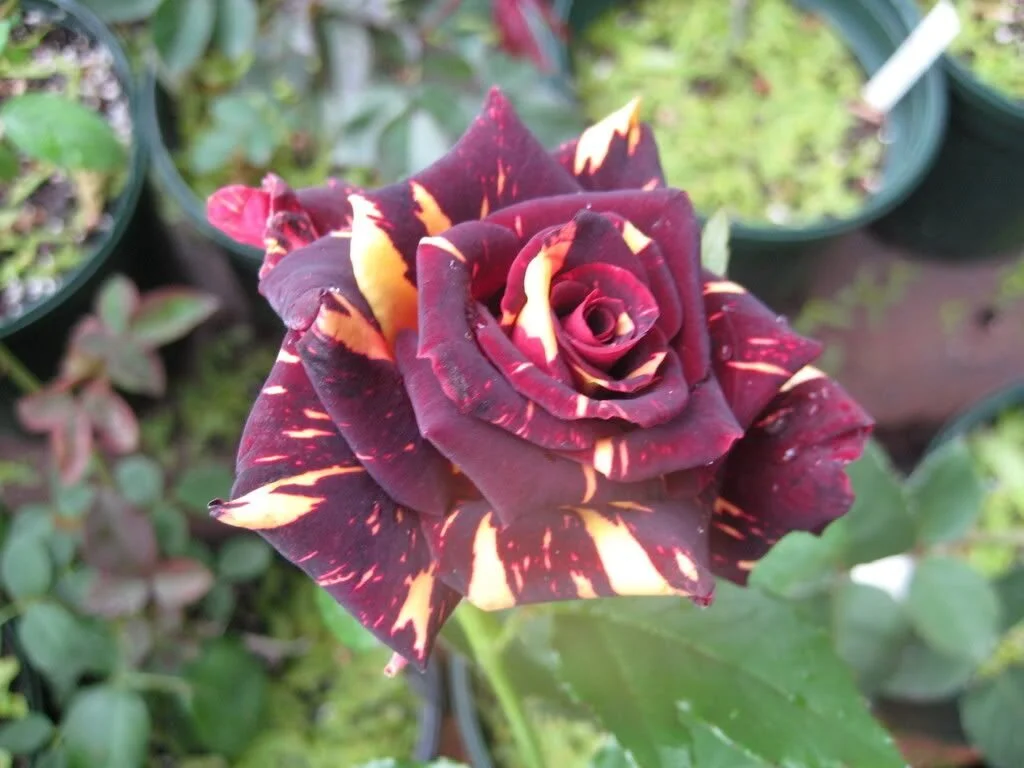By The Landlord
“O my Luve is like a red, red rose
That’s newly sprung in June;
O my Luve is like the melody
That’s sweetly played in tune.” – Robert Burns
“There is nothing more difficult for a truly creative painter than to paint a rose, because before he can do so he has first to forget all the roses that were ever painted.” – Henri Matisse
“Have you seen the roses? There's a whole lot of colours.” – Syd Barrett
“A rose's prick is better than a daisy's kiss.” – Matshona Dhliwayo
“Roses are red, violets are blue, I'm schizophrenic, and so am I.” – Oscar Levant, American pianist and composer
They are the go-to flower for poetry, song, romantic gesture and perfume, and come in a near-infinite variety of colour and form, but, like all the most meaningful forms of beauty, they are also thorny and hurtful. A bed of roses is an expression for an easy, joyful life, but I couldn’t think of a worse night’s sleep that lying amongst such a prickly bunch of prima donnas.
So this week, it’s all about the rose, mentioned in titles or lyrics of song, literal or metaphor, as symbols or even as names, including also instrumentals inspired by the flower. It could well be a blooming field of colourful, musical possibility, so to pare back slightly, let’s prune away adjectival compounds such as rose-coloured or rosy – the rose itself has to be present in some form.
Roses are all about beauty, death and everything in between, whether white, red, pink, or yellow, and all kinds of colour cross-pollinations, the origins emanating from China and other parts of Asia to north America, this perennial flowering plant of the family Rosa has 300 species and tens of thousands of cultivars. The ones we know best, the classic red rose or others in gardens were originally cultivated in 18th-century China, but the first rose on the American continent may have bloomed 50 million years ago.
Lemon yellow …
In Ancient Greece the rose grew to be associated with the goddess Aphrodite – she variously associated with love, beauty, pleasure, passion and procreation. By the second century AD the Greek writer Pausanias linked it with Aphrodite’s mortal lover Adonis, and the red of the petals is associated with blood because Aphrodite wounded herself on its thorns, not because Adonis was a bit of a prick. He came to a bloody end himself, gored by a wild boar during a hunting trip, and died in Aphrodite's arms as she wept, her tears mingling with his blood to create the anemone. Once again – not all a bed of roses.
Thorns remain inextricably linked in the cultural significance of the rose in many ways, particularly in the rise of Christianity in the later stages of the Roman Empire, not just with the crown of thorns, but also associating with the Virgin Mary, and leading to he creation of the rosary.
And plenty of blood has also been shed in the association of the rose with different places, from the yellow one of Texas to the red and white of the respective houses of Lancaster and York in the the Wars of the Roses, those bloody northern conflicts of the 15th century over control of the English crown. It was not exactly a game of cricket between Yorkshire and Lancashire.
The rose comes, either by chance or design, in some more extreme colours too, and these most certainly crop up in the hue and cry of song. Black roses are associated with hatred, death, and despair and has been adopted as symbol of anarchy, which certainly inspired some of the less romantic genres. But the black petal species, from black velvet rose, black magic, barkarole, black beauty, Tuscany superb, black jade, or baccara aren’t really black – they are technically a dark shade of red, purple or maroon, sometimes made darker by placing in a vase of water mixed with black ink. And to go true goth with your rose, burning is another method. The black rose has inspired quite a few horror stories as well as songs including one by Thin Lizzy.
The black rose is more likely very dark red …
The blue rose is another one that isn’t truly blue, but a violet variety that’s then artificially coloured, or by genetic modification, such as has been done to create roses that contain pigment delphinidin to create a dark burgundy blue, cloned from the pansy into a purplish-red Old Garden or Rosa gallica type - "Cardinal de Richelieu”.
But the blue rose, being highly unnatural, has inspired songs, stories and films pertaining to the impossible, the surreal, the frightening and the supernatural, such as in In David Lynch's Twin Peaks, in a song by Joni Mitchell, or in the film Pan's Labyrinth,
The blue rose in Twin Peaks – into realms of the unknown or impossible
And so there’s a whole bunch of visitors to the Bar ready to stuff their rose perspectives into our vase. There are rose-hip drinks, including tea available for those who fancy a vitamin C boost, as well as petals to add perfume to cocktails. But not everyone is a fan of the rose, and some note how seeking it means you often overlook better alternatives.
Cultural critic H.L. Mencken, clutching his copy of A Book of Burlesques, is eager to tell us that not everything smells of roses: “An idealist is one who, on noticing that a rose smells better than a cabbage, concludes that it makes a better soup.”
And philosopher Bernard Williams reckons that “we may pass violets looking for roses. We may pass contentment looking for victory.”
Bar regular and author Dale Carnegie is also eager to point of that the rose may be a romantic gesture, but it can also symbolise overlooking reality. “One of the most tragic things I know about human nature is that all of us tend to put off living. We are all dreaming of some magical rose garden over the horizon instead of enjoying the roses that are blooming outside our windows today.”
The great playwright Arthur Miller is also here, and agrees that the rose is over-romanticised and also plays tricks with our memory. "Can anyone remember love? It's like trying to summon up the smell of roses in a cellar. You might see a rose, but never the perfume.”
A rose of many colours - not always natural …
And when it comes to perfume, Jean Cocteau turns up his French nose, and then declares that “a true poet does not bother to be poetical. Nor does a nursery gardener scent his roses.”
So, against expectations, the rose doesn’t always bring out the romantic as much as the realist.
"A revolution is not a bed of roses,” says Fidel Castro. But have a cigar.
And only here in the Song Bar can Castro be standing next to disco star Tina Charles, who reckons that “Rock 'n' Roll is no no roses or gardening.”
But another Charles, the great singer Charles Bradley, sees the rose in a more positive shade. “We've got to learn how to not look at creed or color. Look at how beautiful a bouquet of roses looks like - different color roses, all look beautiful. We have to learn how to let our beauty of the color of our roses shine to the world.”
Johnny Mercer has also arrived in the musicians’ corner and beginning to tinker on our piano, trills: “Days of wine and roses laugh and run away, like a child at play.”
Roses then are a great lesson in life, bringing together the rough and the smooth, variety of experience from good and bad. The Swedish feminist Ellen Key, who wrote extensively on family life, ethics and education, think that “ at every step the child should be allowed to meet the real experience of life; the thorns should never be plucked from his roses.”
Burgundy ice
But alongside song if the rose has inspired one genre more than any, it is poetry, and once again, by contrast to the famous Robert Burns example, the flower is used in ways that are far from being a bed of roses. Emily Brontë compares two thorny bushes, the love rose unfavourably with the holly of friendship.
“Love is like the wild rose-briar;
Friendship like the holly-tree.
The holly is dark when the rose-briar blooms,
But which will bloom most constantly?”
And in Daphne du Maurier’s novel Rebecca, the rose garden is seen without affection: “There was something rather blousy about roses in full bloom, something shallow and raucous, like women with untidy hair.”
William Blake’s The Sick Rose is one of his most enigmatic short verses, strange in punctuation, and sinister in its symbolism. It it sexual, pertaining to religion, or something else?
O Rose thou art sick.
The invisible worm,
That flies in the night
In the howling storm:
Has found out thy bed
Of crimson joy:
And his dark secret love
Does thy life destroy. - William Blake, The Sick Rose
William Blake’s The Sick Rose, from Songs of Innocence and Experience
And more directly relating to historic figures and events, WB Yeats’s The Rose Tree creates a fictional conversation between James Connolly and Padraig Pearse, the leaders of Ireland’s 1916 Easter Rising, where the dream of independence is a rose tree parched by English suppression and stained with violence.
'But where can we draw water,'
Said Pearse to Connolly,
'When all the wells are parched away?
O plain as plain can be
There's nothing but our own red blood
Can make a right Rose Tree.' – WB Yeats ,The Rose Tree
But few can outdo Sylvia Plath when it comes to withering the romanticism of the rose, as in this thorny remark from The Bell Jar:
That afternoon my mother had brought me the roses.
"Save them for my funeral," I'd said.
But for each rose that dies, many more will take its place, and the same goes for songs. Inevitably one of the best known rose-related songs has previously been picked for a very old topic of flowers, so with its passionate but deathly associations, and to set things flowering, here is Nick Cave, joined by Kylie Minogue, a tale of love and murder, Where The Wild Roses Grow:
They call me The Wild Rose
But my name was Elisa Day
Why they call me that I do not know
For my name was Elisa Day
On the third day he took me to the river
He showed me the roses and we kissed
And the last thing I heard was a muttered word
As he knelt above me with a rock in his fist
On the last day I took her where the wild roses grow
She lay on the bank, the wind light as a thief
And I kissed her goodbye, said, "All beauty must die."
And I leant down and planted a rose 'tween her teeth.
And so then, carefully pruning and plucking your rose song suggestions, I’m delighted to welcome this week’s skilled musical gardener, the artistically aromatic and excellent amylee! Please plant your songs in comments below for deadline on Monday 11pm UK time, for playlists published next week. It’ll be bloomin’ great.
Rosa Abracadabra
New to comment? It is quick and easy. You just need to login to Disqus once. All is explained in About/FAQs ...
Fancy a turn behind the pumps at The Song Bar? Care to choose a playlist from songs nominated and write something about it? Then feel free to contact The Song Bar here, or try the usual email address. Also please follow us social media: Song Bar Twitter, Song Bar Facebook. Song Bar YouTube, and Song Bar Instagram. Please subscribe, follow and share.
Song Bar is non-profit and is simply about sharing great music. We don’t do clickbait or advertisements. Please make any donation to help keep the Bar running:

